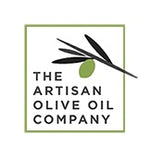Health Benefits of Polyphenols
Polyphenols are naturally occurring compounds found in many plant-based foods such as fruits, vegetables, tea, red wine and olive oil. Extra virgin olive oil (EVOO) is particularly rich in polyphenols, which contribute significantly to its well-known health benefits. Here are some of the key reasons polyphenols are considered valuable:
Antioxidant protection
Polyphenols act as powerful antioxidants. They neutralise free radicals—unstable molecules that can cause oxidative stress and contribute to ageing and chronic diseases.
Anti-inflammatory effects
Chronic inflammation plays a major role in conditions such as heart disease, cancer and neurodegenerative disorders. Polyphenols in olive oil have proven anti-inflammatory properties, helping to reduce inflammation and associated risks.
Heart health
Regular consumption of olive oil is linked to reduced risk of cardiovascular disease. Polyphenols help improve blood vessel function, lower blood pressure and prevent the oxidation of LDL (“bad”) cholesterol.
Potential cancer protection
Some studies suggest that polyphenols may slow the growth of cancer cells or reduce the likelihood of certain cancers developing.
Brain and nervous system support
Polyphenols may help protect nerve cells and support cognitive health, potentially lowering the risk of conditions such as Alzheimer’s and Parkinson’s.
Blood sugar regulation
They may help stabilise blood glucose, offering benefits to those with or at risk of type 2 diabetes.
The benefits depend on type and concentration of polyphenols, as well as overall lifestyle. Extra virgin olive oil, which is minimally processed, retains more natural compounds than refined oils.
Foods Rich in Polyphenols
Common foods containing high levels of polyphenols include:
-
Berries and apples
-
Dark chocolate (70%+ cocoa)
-
Red grapes and red wine
-
Tea (green, black, white)
-
Nuts (especially walnuts)
-
Herbs & spices such as cinnamon, oregano and turmeric
-
Onions, legumes and flaxseeds
Which Olive Oils Are Highest in Polyphenols?
Certain olive varieties naturally produce oils with higher polyphenol content, including:
-
Coratina (Italy)
-
Picual (Spain)
-
Koroneiki (Greece)
-
Picholine (France / Southern Italy)
-
Frantoio and Leccino (Tuscany)
Polyphenol levels vary by harvest time, climate and extraction method. For the highest levels, look for:
-
Early-harvest oils
-
Cold-extracted extra virgin olive oil
-
Producers who list variety and harvest date
👉 Explore our High-Polyphenol Olive Oil Collection

